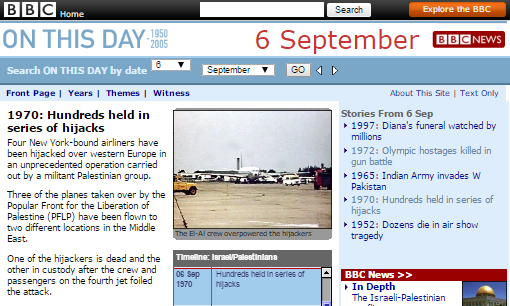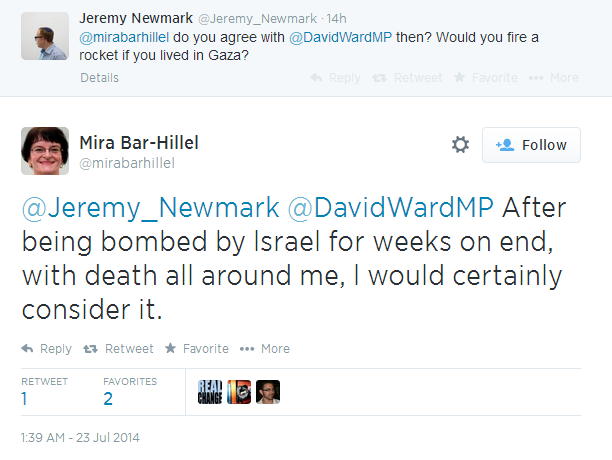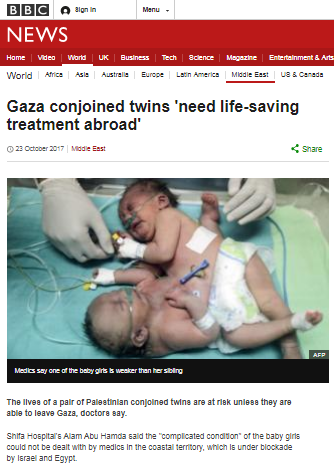As was the case when vehicular terror attacks took place in Stockholm, Nice, Berlin and London, despite its supposed policy of avoiding the word ‘terrorist’ without attribution in order to avoid “value judgements”, the BBC made appropriate use of that and related terminology when reporting on the terror attacks in Barcelona and Cambrils on August 17th and 18th.
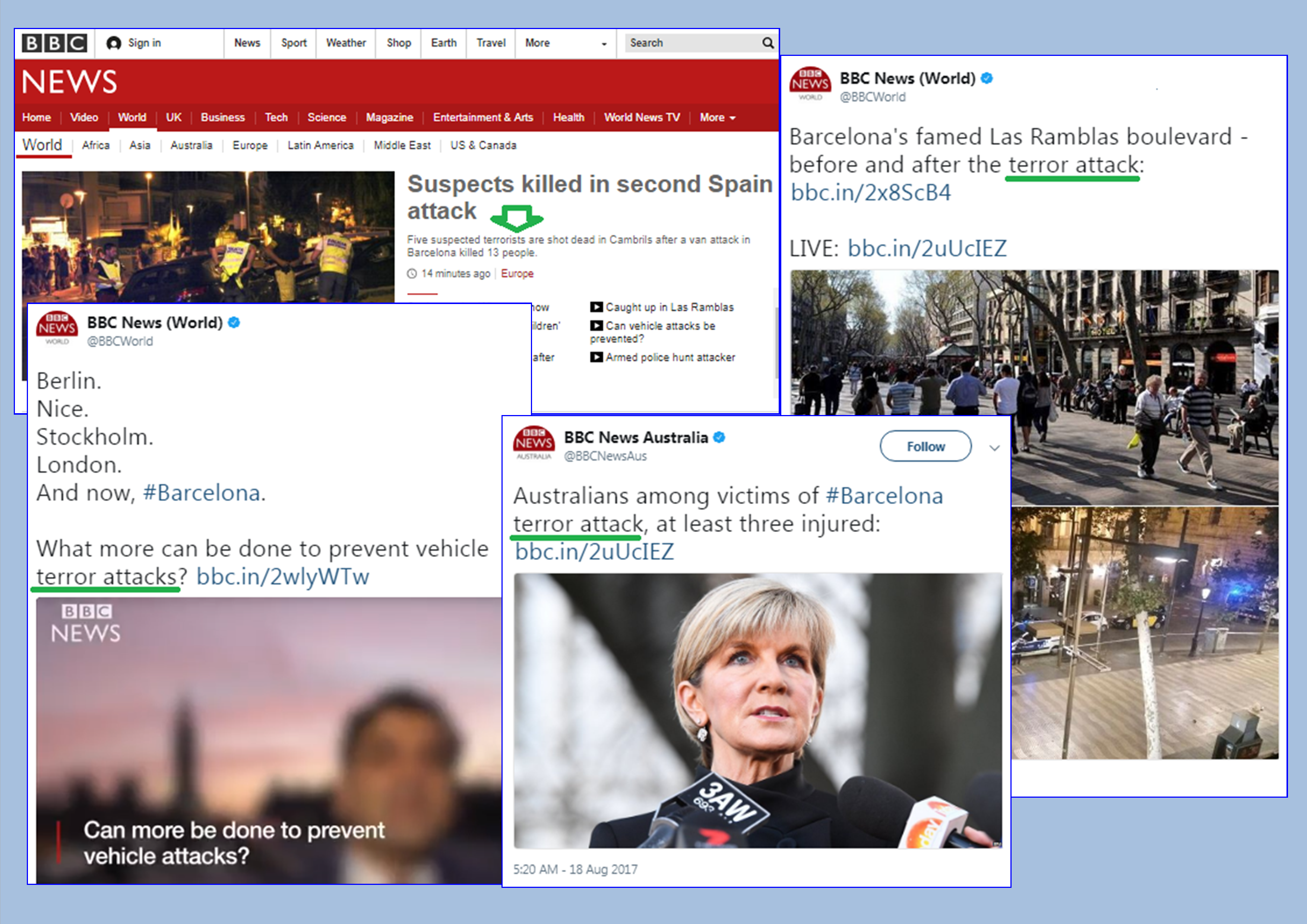
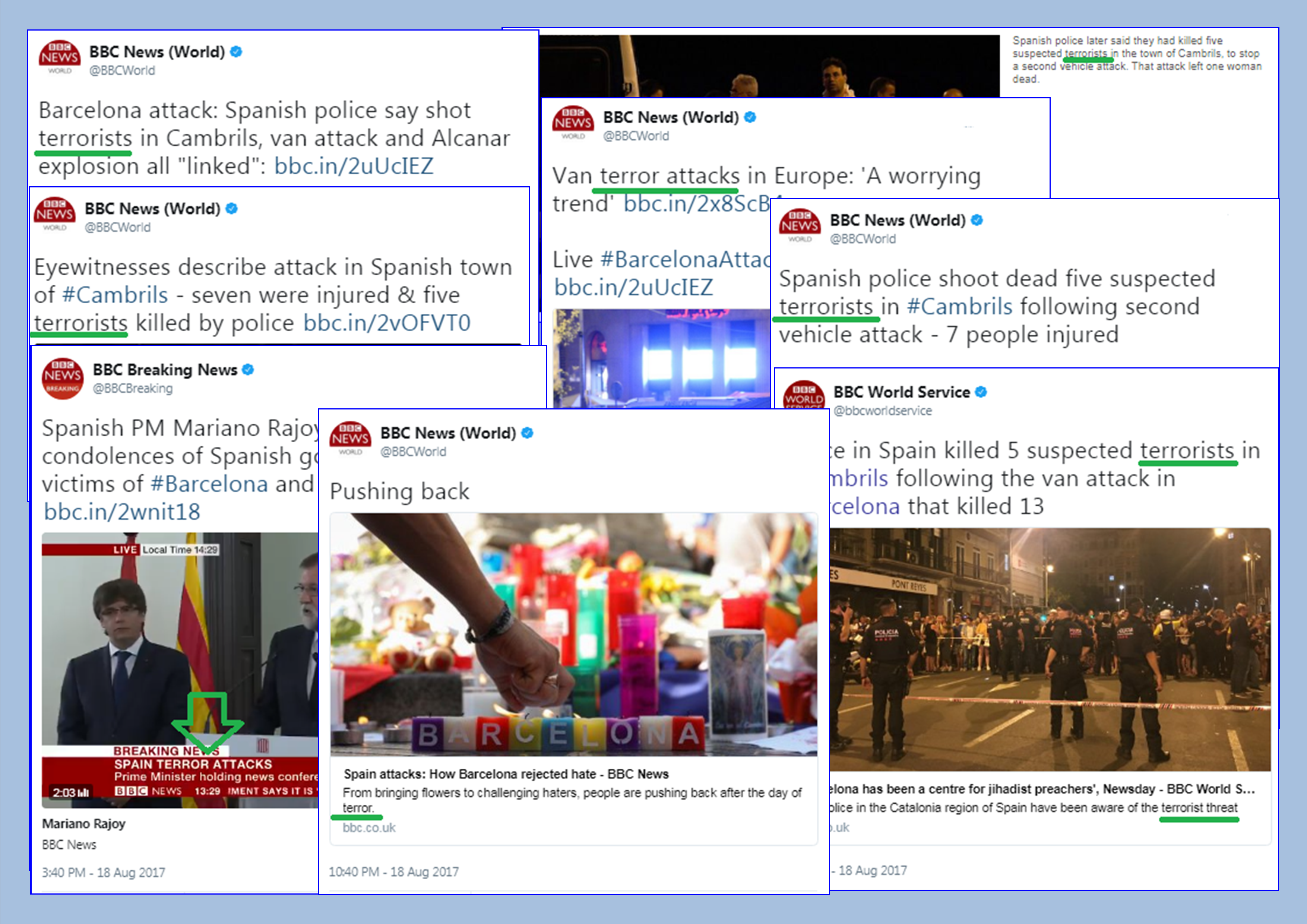
As readers are no doubt aware, attacks on Israelis using the same or other methods are never described by the BBC as terror in its own words. The reason for that glaring double standard lies in the BBC’s failure to distinguish between method and aims, with the result being that when somebody deliberately drives a vehicle into a group of people, the corporation’s description of the attack as terror – or not – depends on the perceived aims and affiliations of the perpetrator.
Earlier this year the BBC came up with a new ‘explanation’ for the egregious double standard repeatedly seen in its reporting of terror in Israel and elsewhere – particularly Europe.
“Where there is an ongoing geopolitical conflict – as in the Middle East – to use the term “terror attack” or similar might be seen to be taking sides. There are those who might consider the actions of the Israeli government to be considered as terrorist acts.
In a situation where a country that is not involved in a direct physical combat comes under attack, it may be reasonable to construe that as a terrorist incident.
The use of such terminology is never an exact science but where a continuing conflict exists, it is reasonable that the BBC would not wish to appear to be taking sides.”
As was noted here at the time:
“The bottom falls out of that argument when we recall that the BBC did use the term ‘Jewish terrorists’ to describe the perpetrator/s of the arson attack in Duma, despite the existence of an “ongoing geopolitical conflict”.
The corporation’s complaints department also appears to have tried to find a way of dismissing the fact that UK forces are involved in the military campaign against jihadists in Iraq and Syria by means of use of the term “direct physical combat”. Notably, the BBC is apparently not inclined to promote the notion that those actions of a state fighting terrorism might be “considered as terrorist acts”.”
Like the UK, Spain is also a member of the international coalition “united in defeating Daesh” and the word terrorist has also been seen in a BBC report concerning another country involved in “direct physical combat” with ISIS.
The fact that the BBC does manage to report terror attacks in other parts of the world using appropriate language means that its long-standing editorial policy of eschewing accurate terminology in coverage of Palestinian attacks on Israelis becomes even more glaring and the redundancy of its inconsistently applied guidelines and guidance is highlighted all the more. Absurdly, the BBC will no doubt still claim that it produces ‘impartial’ and ‘unbiased’ reporting from Israel.
Related Articles:
Reviewing BBC reporting of vehicular attacks in France and Israel
BBC coverage of Berlin terror attack again highlights double standards
Absurdity of BBC’s ‘Language when Reporting Terrorism’ guidance on display again
BBC’s vehicular terrorism double standards on display again
BBC Complaints: terror attacks in Jerusalem and Tunisia are “very different”

